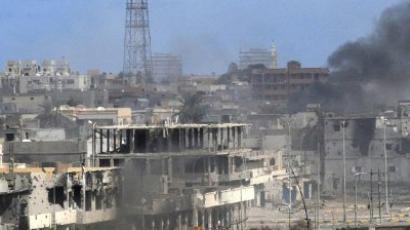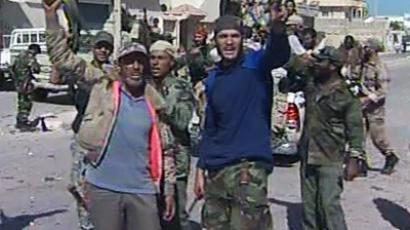Gaddafi’s path: From villain to investor and back
Muammar Gaddafi, one of the most exotic-looking heads of state, had a turbulent political career. He was called a terrorist sponsor, an atoned and welcomed dictator, and then a war criminal.
Since taking over Libya in the 1969 coup, Gaddafi built his image as a North African loose cannon. He sided with the Soviet Union during the Cold War, borrowing from socialist ideas in governing his country, but never becoming the Kremlin’s gutless dependant. One historical anecdote of the time says that during one visit to Moscow, Gaddafi refused to leave his plane and meet Brezhnev until the hosts took him to witness an Islamic funeral – as proof that Muslims were not discriminated against in the USSR.Gaddafi was always a committed Arab leader with a strong anti-Israeli stance. He worked hard on regional integration – with himself as a key figure in the process. The African Union is basically the creation of Muammar Gaddafi, who saw it as a vessel for a stronger Africa.He stressed with every aspect of his life his Bedouin roots, insisting on staying in a tent during his foreign trips. It is rumored that the tent had armored walls and weighed several tons. The media eagerly reported about his extravagant clothes and the habit of taking a squad of female bodyguards with him wherever he went – apparently the “Amazons” were more loyal than any male bodyguards.
West’s best dictator-friend
The West saw Gaddafi for decades as a brutal dictator, who used oil revenues to sponsor leftist dictators and terrorists all around the world. But in the 2000’s this image underwent a change. The Libyan leader claimed responsibility for the notorious Lockerbie bombing, handing over two people for trial over the crime and paying $2.7 billion in compensation.He began to co-operate with Western intelligence services in fighting Islamic terrorists, who particularly the Libyan Islamic Fighting Group, which nearly assassinated him in 1996. He assisted the George W. Bush’s administration with the shadier part of the war on terror like “extraordinary renditions” and torture of terror suspects, as documents recently seized by the current Libyan government revealed.Gaddafi dismantled all his weapons of mass destruction programs – with some Western officials, including the US president, saying that it was result of the ill fate of Iraq’s Saddam Hussein. The efforts paid well, as Libya was removed from Western blacklists and Western companies started multimillion-dollar projects in Libya.The Libyan leader was welcomed in Western capitals. Tony Blair, Nicolas Sarkozy, Silvio Berlusconi and Barack Obama had no reservations before shaking Gaddafi’s hand. Western companies invested into business projects in Libya, while billions of Libyan assets went to Western banks.
Shunned, ousted, killed in action
The tide turned again in February 2011. Gaddafi faced an uprising at home – one of quite a few he fought against during his lifetime. Some of his former subordinates tried to oust the ruler, and he did what he always did in such situations – suppressed the coup.The unsuccessful mutineers fled to Benghazi, a city with a long record of anti-Gaddafi sentiment, where they could recruit those eager to take arms against the government in Tripoli. The rioters took over police stations and military bases, which naturally led to Gaddafi sending troops against them.However the rebels found unexpected backing from foreign nations. Britain and France, which saw Gaddafi as a good business partner just a few months before, labeled him a war criminal targeting his own population. The UN Security Council adopted a resolution which allowed NATO forces to de facto become the Air Force of the rebels, who would no doubt otherwise be eventually defeated by the government.With such a force against him, Gaddafi’s fate was sealed. It is a great surprise that he managed to stay in power for six months under NATO bombings. Libyan assets, which had been frozen when the conflict erupted and which are sometimes labeled Gaddafi’s personal wealth for some reason, are mostly still frozen. Western allies promised to eventually hand them over to the new government, when it is ready, but no deadline for this transition has been voiced yet.Muammar Gaddafi was reportedly killed in combat in Sirte, the place where he was born. If true, his supporters would call it honorable death for a warrior he was. His enemies would call it a just punishment for his crimes. How guilty he was – against his own people or anyone else – may remain a mystery now, as he will not face trial before the law.Libya was one of the wealthiest nations in Northern Africa, with a strong social welfare program, an extensive public healthcare and education system, and numerous jobs for migrant workers from all neighboring countries. Now it is liberated from Gaddafi's regime at the cost of thousands of lives, with tens of thousands of refugees, ruined infrastructure, unruly regional forces and thousands of weapons, including portable surface-to-air missile launchers missing. And oil contracts with those who bombed the new government into power.














